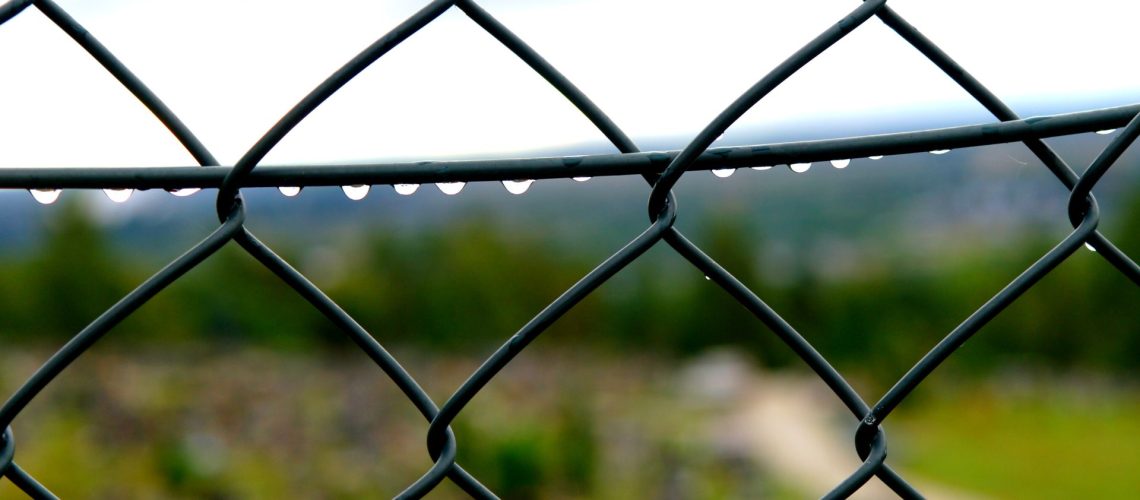Fences play an important role in both residential and commercial properties, and it’s crucial to make sure they’re up to par for both security and aesthetic reasons. Weather conditions can have a big impact on your fence, so it’s important to be aware of how they can affect it.
In this blog post, we’ll take a look at how different types of weather can affect your fence and what you can do to mitigate any damage. So without further ado, let’s get started!
Snowfall and Rainstorm
At first glance, it may not seem like weather has much of an effect on fences. However, both commercial and residential fence owners need to be aware of the potential damage that can be caused by heavy snowfall and severe rainstorms.
Snow and rain can cause the ground to shift, putting pressure on the fence posts and leading to leaning or even collapsing. In addition, the weight of the snow or water-logged soil can cause the fence panels to sag or buckle. In fact, heavy snowfall can cause fencing to collapse, while prolonged exposure to rain can lead to rot and decay.
For example, if a fence is made from a softwood like cedar, it can warp or rot if it gets too wet. Similarly, if a fence is made from a metal like iron, it can rust if it’s constantly exposed to moisture. While these problems are usually easy to fix, they can be costly, so it’s important to be aware of them.
And if there is already damage to the fence, such as a loose board or rotted post, weather can exacerbate the problem and cause further damage. As a result, it is important to inspect your fence regularly and make repairs as needed to help ensure that it can withstand whatever Mother Nature throws its way.
One way to do this is to use a sealant or waterproofing agent on the fence panels. This will help to create a barrier against water damage. In addition, you should make sure that the fence is properly supported. This will help to prevent it from toppling over in the event of a heavy snowfall. By taking these precautions, you can help to ensure that your fence remains in good condition for years to come.
Spring
The arrival of spring brings warmer weather and the opportunity to enjoy the outdoors after a long winter. But as the days grow longer and the temperatures rise, your fence may start to show signs of wear and tear. Here are a few ways that the spring season can affect your commercial or residential fence:
As the ground thaws, it can cause the posts supporting your fence to shift, resulting in a leaning or sagging fence. If you notice any shifting, it’s important to have a professional check it out and make any necessary repairs.
Heavy rains can also take a toll on your fence, causing warping, rotting, or mould growth. If you live in an area with especially severe weather conditions, it’s important to have your fence inspected regularly to ensure that it’s still in good condition.
Finally, warmer temperatures can cause paint or finishes to fade or blister. If you’ve recently had your fence painted or stained, be sure to monitor it for any changes and touch up as needed. By taking these steps, you can help keep your fence looking its best all spring long.
Fall
The leaves are changing color and falling, which can only mean one thing- autumn is here! While this time of year brings many things to enjoy, it can also have an impact on your commercial or residential fence. Here are a few ways that the fall season can affect your fence.
One way that the fall season can affect your fence is by increasing the chances of wind damage. Strong winds can cause trees and branches to fall, which could potentially damage your fence. To help prevent wind damage, it is important to trim any trees or branches near your fence. In addition, if you know that a storm is coming, you should secure any loose items near your fence to help reduce the risk of damage.The falling leaves can clog gutters and downspouts, causing water to back up and potentially damage your fence.
Grasses that go dormant can become yellow and brittle, making them more susceptible to breakage. This can cause your fence posts to become loose or even break. Cooler temperatures can cause the ground to freeze, which can heave or shift your fence posts. This can damage your fence or make it difficult to open and close gates.
Another way that the fall season can affect your fence is by increasing the chances of water damage. Heavy rains can cause water to pool around your fence, which could lead to warping or rot. To help prevent water damage, it is important to make sure that your fence is properly sealed and that there are no gaps that could allow water to seep through. In addition, you should clear any leaves or debris from around your fence to help promote drainage.
By taking a few simple precautions, you can help protect your fence from the effects of the fall season. By trimming trees and branches near your fence, securing loose items, and keeping your fence clear of debris, you can help reduce the risk of damage and extend the life of your commercial or residential fence.
Summer
The summer season can take a toll on both commercial and residential fences.
For commercial fences, the heat can cause the metal to expand and warp, which can then lead to problems with the structure of the fence. The UV rays from the sun can also fade the color of the fence, making it look old and worn.
For residential fences, the summer heat can cause the wood to dry out and crack.
The heat can cause the wood to warp, the metal to bend, and the Vinyl to become brittle. In addition, summer storms can also cause damage to fences.
The increased rainfall during the summer months can also lead to moss and mildew growth, which can weaken the fence and make it more susceptible to damage.
If your fence is in need of repair or replacement, it is best to contact a professional fence company. A qualified fence contractor will be able to assess the damage and recommend the best course of action.
In some cases, the damage may be covered by your insurance policy. In other cases, you may need to pay for the repairs out of pocket. Either way, it is important to act quickly to avoid further damage to your property.


